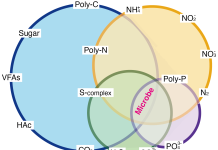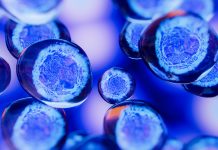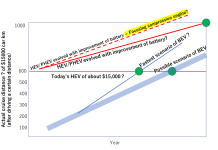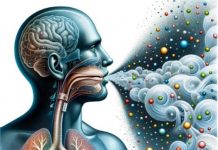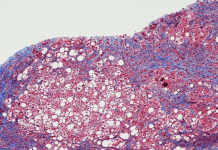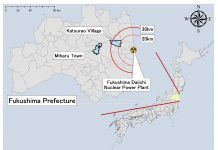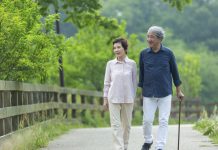Open Access Government produces compelling and informative news, publications, eBooks, and academic research articles for the public and private sector looking at health, diseases & conditions, workplace, research & innovation, digital transformation, government policy, environment, agriculture, energy, transport and more.
Home 2025
Archives
Cultural adaptation of the iSupport for Dementia psychoeducation programme for care partners
This article examines the cultural adaptation of iSupport for Dementia, an online platform developed by the WHO for dementia caregivers. It emphasises research findings that demonstrate the program’s effectiveness and benefits for Chinese care partners.
Cell biology research: The mystery of cholesterol homeostasis
Kazumitsu Ueda, PhD from Kyoto University, WPI-iCeMS, unveils the mystery of cholesterol homeostasis in this cell biology research focus.
Australia’s soils have sent us a warning: We should listen
Praveena Sridhar, the CTO of the Save Soil Movement, believes that Australia’s soil has been signalling a message to us, and as a result, we ought to pay attention.
Timely diagnosis and intervention for people with dementia
Jockey Club Centre for Positive Ageing experts highlight the importance of timely diagnosis and intervention for people with dementia.
Persistent anti-vaxxers and pandemic-induced new anti-vaxxers
Read this analysis of persistent anti-vaxxers and pandemic-induced new anti-vaxxers by Fujio Toriumi, Professor at the University of Tokyo in Japan.
Microbes as high-potential green resource producers
Hui-Ping Chuang, Assistant researcher at the Sustainable Environment Research Laboratories of the National Cheng Kung University, shares insights into the vital role of microbes in waste removal and sustainable resource generation.
The ethical and legal challenges of cell donation for brain organoid research
Ethical and legal concerns raised by the use of human biological materials, especially cells from adult donors and foetal tissues, must be thoroughly examined.
Algorithm “DPTM” for continuous authentication with behavioural biometrics
Takeshi Yamada, Professor from Daiichi Institute of Technology, describes the algorithm “DPTM” for continuous authentication with behavioural biometrics, beginning with the current device security outlook.
Progress and challenges in corporate initiatives towards human rights in Japan
Emi Sugawara, Professor at Osaka University of Economics and Law, Faculty of International Studies, continues to examine business and human rights in Japan, charting the progress and challenges in corporate initiatives.
Reducing climate change and global warming
Professor Ken Naitoh from Waseda University in Japan charts a particular interdisciplinary carbon-neutral approach for reducing climate change and global warming that he believes will lead to a more peaceful world.
Enhancing Japanese elementary and junior high-school foreign language education
Our ongoing research, fuelled by last year’s research grant, delves into the theme of “Evaluation of Foreign Language Education Fostering Children’s Thinking, Judgment, Expressiveness and Autonomous Attitude in the Digital Age”.
Revolutionising disease detection: The emergence of non-invasive VOC breathomics
Breathomics marks a revolutionary approach to disease detection by analyzing the chemical composition of exhaled breath.
Business and human rights in Japan: Progress and challenges of the Japanese government
Professor Emi Sugawara from Osaka University of Economics and Law, Faculty of International Studies, discusses government’s efforts to respect human rights in the supply chain.
Chronic organ damage: Understanding fibrosis
Fibrosis was once considered irreversible, resulting from chronic organ damage; Ken-Ichi Kobayashi from Notre Dame Seishin University tells us why the possibility of treatment to reverse the disease is gaining attention.
Prolonged impact of the Fukushima Nuclear Power Plant Accident on health and society
Naomi Ito, Research Assistant at the Fukushima Medical University, tells us how the 2011 Fukushima Daiichi Nuclear Power Plant Accident impacted and continues to impact local residents.
A wonder therapy for knee osteoarthritis
Professor Shaw-Ruey Lyu from the Dalin Tzu-Chi Hospital discusses the benefits of arthroscopic cartilage regeneration facilitating procedure (ACRFP) as an alternative to traditional methods of treating knee OA.
Primary care and medical education for Japan’s ageing population
Prof Junji Haruta from Keio University highlights Japan’s ageing population, focusing on challenges and innovations in primary care, plus medical education.
Drug repositioning using multiple gene expression profiles
Chuo University’s Professor Y-h. Taguchi places focus on drug repositioning using multiple gene expression profiles
Knee health promotion and cell therapy for knee osteoarthritis
Shaw-Ruey Lyu, Professor from Dalin Tzu-Chi Hospital, Tzu-Chi University, says that the knee health promotion option and cell therapy are a perfect combination for knee osteoarthritis.
Business and human rights in Japan: Rights holders’ perspectives
Emi Sugawara, Osaka University of Economics and Law, examines business and human rights issues in Japan with a focus on the priority issues from rights holders’ perspectives.






